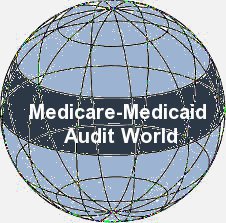 Often overlooked in performance evaluations of the various contractors employed by the Medicare program to ensure program integrity, is the cost incurred by providers in responding to contractor requests for information related to billed claims and provider costs in appealing improper contractor denials. In light of the ongoing debate about whether reduced Medicare payments mandated by the Patient Protection and Affordable Care Act will drive providers from the Medicare program, an analysis of the administrative costs incurred by providers as the result of Medicare program integrity activity is in order.
Often overlooked in performance evaluations of the various contractors employed by the Medicare program to ensure program integrity, is the cost incurred by providers in responding to contractor requests for information related to billed claims and provider costs in appealing improper contractor denials. In light of the ongoing debate about whether reduced Medicare payments mandated by the Patient Protection and Affordable Care Act will drive providers from the Medicare program, an analysis of the administrative costs incurred by providers as the result of Medicare program integrity activity is in order.
 With the exception of the data collected by the American Hospital Association (AHA) through its RAC Trac initiative, I am not aware of any other data tracking administrative costs incurred by providers in connection with Medicare program integrity activities. As far as I know there is no aggregate data of the costs incurred by any identified group of Medicare providers in connection with pre and post payment reviews conducted by the MACs or the costs incurred by Medicare providers in responding to document or other information requests by ZPICs or their PSC predecessors.
With the exception of the data collected by the American Hospital Association (AHA) through its RAC Trac initiative, I am not aware of any other data tracking administrative costs incurred by providers in connection with Medicare program integrity activities. As far as I know there is no aggregate data of the costs incurred by any identified group of Medicare providers in connection with pre and post payment reviews conducted by the MACs or the costs incurred by Medicare providers in responding to document or other information requests by ZPICs or their PSC predecessors.
The RAC Trac Data
According to the American Hospital Directory, there are about 4,219 hospitals in the United States. About 2,200 of those hospitals provided data to the AHA during the first half of 2012 on the costs associated with RAC activities. About 75% of the hospitals reported that RAC activity had some impact on their operations, the single largest impact being increased administrative costs. Approximately 45% of the hospitals spent less than $3,300 per month because of RAC audits while about 8% of the hospitals spent over $33,300 per month on RAC activities. In terms of employee time, the hospitals reported that about 315 hours of employee time per month was devoted to RAC activities. In addition to internal costs, the hospitals reported that they spent about $33,000 per month on external resources required to address RAC issues. The AHA report on the RAC Trac survey data for the 1st quarter of 2012 is available here, and the 2nd quarter results are available here.
What the Future Holds
 To date most RAC audits have been directed at hospital short stay billing because of the larger claim amounts involved. However, Connolly recently announced that it would begin reviewing billing for E & M services both in and out of the hospital. This expansion was inevitable and not surprising in light of the statistics reported by the Association of American Medical Colleges in its 2011 State Physician Workforce Data Book that there were 799,509 active physicians in the United States in 2010 and Figure 2.13 in The Kaiser Family Foundation Medicare Chartbook, Fourth Edition, 2010, which indicates that 96% of physicians and other practitioners participate in Medicare Part B.
To date most RAC audits have been directed at hospital short stay billing because of the larger claim amounts involved. However, Connolly recently announced that it would begin reviewing billing for E & M services both in and out of the hospital. This expansion was inevitable and not surprising in light of the statistics reported by the Association of American Medical Colleges in its 2011 State Physician Workforce Data Book that there were 799,509 active physicians in the United States in 2010 and Figure 2.13 in The Kaiser Family Foundation Medicare Chartbook, Fourth Edition, 2010, which indicates that 96% of physicians and other practitioners participate in Medicare Part B.
The expansion of recovery audits to physicians and other practitioners who participate in Medicare Part B raise two questions, the answers to which may have a profound impact on the Medicare program. In Part II of this post, I will discuss whether:
- Providers will decide that the amount they receive from Medicare justifies the costs necessary to manage RAC audits and appeals or whether some providers will eventually conclude that those additional costs make serving Medicare patients a losing proposition?
- The contingent fee arrangement under which the RACs are paid will influence the number of alleged improper claims the RACs find. It is not hard to imagine that as the volume of smaller dollar value claims audited by the RACs goes up, a greater percentage of reviewed claims will be found to be improper, as the RACs seek to maintain their profit margins. If this occurs, will the costs incurred by providers from this increased RAC activity drive providers out of the Medicare program?
Please contact us if we can be of any assistance with RAC audits or appeals or in helping to resolve an issue with any of the legion of CMS auditors in Medicare-Medicaid Audit World.
 Medicare-Medicaid Audit World
Medicare-Medicaid Audit World






